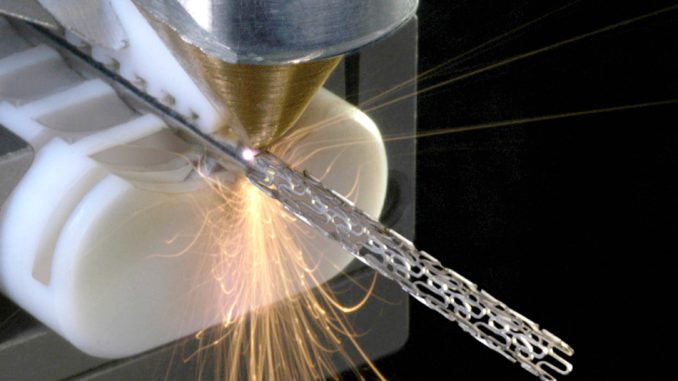
Medical device welding is vital in developing and producing innovative healthcare devices and solutions. With its ability to join and assemble components with precision and reliability, welding techniques are crucial in manufacturing various medical devices. The article explores the diverse applications of medical device welding, highlighting its significance in advancing healthcare and improving treatment outcomes.
-
Hermetic Sealing
Hermetic sealing, a critical application of medical device welding, involves creating a completely airtight and moisture-proof enclosure. The process is commonly achievable through techniques like medical laser welding. Hermetic sealing has wide application in the healthcare industry, particularly in manufacturing implantable devices such as pacemakers, defibrillators, and cochlear implants.
These devices require a reliable and secure seal to protect sensitive electronic components from external elements. Hermetic sealing ensures these medical devices’ longevity, functionality, and safety without compromising functionality, highlighting its crucial role in improving patient care and overall healthcare outcomes.
-
Assembly of Surgical Instruments
The assembly of surgical instruments is a critical aspect of medical device welding, involving the joining of various components to create functional and reliable tools for surgical procedures. The process requires precision and expertise to ensure the instruments’ structural integrity and hygienic properties. Surgical instruments that undergo welding assembly include forceps, scissors, retractors, and needle holders.
Due to the details and specialized nature of surgical instrument assembly, it’s fundamental to outsource this task to professional welding companies with expertise in medical device welding. Outsourcing to a reputable welding company like Micro Weld, Inc ensures the highest quality standards and adherence to regulatory requirements for these crucial medical instruments.
-
Laser Welding of Catheters
Laser welding plays a significant role in fabricating catheters, a vital medical device for various diagnostic and therapeutic procedures. Medical laser welding of catheters involves joining the different components, such as the tubing, tip, and connectors, using a precise and controlled laser beam. The technique ensures a secure, seamless, leak-proof bond between the components.
High-quality welding is crucial for catheters as they involve inserting into the human body, and any compromise in the weld integrity can lead to leakage, loss of functionality, or potential harm to the patient. Therefore, maintaining a high standard of welding quality is paramount to ensure the reliability, safety, and effectiveness of catheters in medical procedures.
-
Repair of Diagnostic Equipment
Complex and intricate medical diagnostic devices, such as X-ray machines, ultrasound equipment, and MRI scanners may encounter damage or component failures over time. These complicated and specialized components may require welding repair due to damage, wear and tear, or the need for exact part replacement.
Welding professionals with expertise in medical device repair, like Micro Weld, Inc, perform precise welding to address these issues, ensuring that the repaired components meet the original specifications, functionality, structural integrity and alignment with the equipment.
Whether it’s 3D additive manufacturing, precision laser welding, or other advanced repair techniques, outsourcing to a reliable welding company with cutting-edge technology and expertise is crucial. High-quality welding repairs extend the lifespan of diagnostic equipment, minimizing downtime and reducing costs associated with total equipment replacement.
-
Fabrication of Custom Medical Devices
Fabrication of custom medical devices is an excellent application of medical device welding, offering tailored solutions to meet individual patient needs. Harnessing welding technologies helps welding companies precisely craft specialized devices with short lead times, such as patient-specific implants, prosthetics, and surgical instruments. The customization enables optimal fit, functionality, and compatibility, improving patient outcomes.
Welding is pivotal in joining complex components, selecting appropriate biocompatible materials, and ensuring structural integrity. The fabrication of custom medical devices exemplifies the versatility and innovation of medical device welding, empowering healthcare professionals to deliver personalized care and revolutionize the field of medical interventions.
Conclusion
Medical device welding has revolutionized the field of healthcare by enabling diverse applications. Welding professionals join complex components, craft specialized devices, and repair diagnostic equipment, driving remarkable advancements. Through 3D additive manufacturing, precision laser welding, and fabrication of custom medical devices, welding techniques push boundaries and deliver personalized care. Active and skilled welding expertise by professional welders like Micro Weld, Inc improves patient outcomes, fosters innovation, and shapes the future of medical interventions.

Leave a Reply